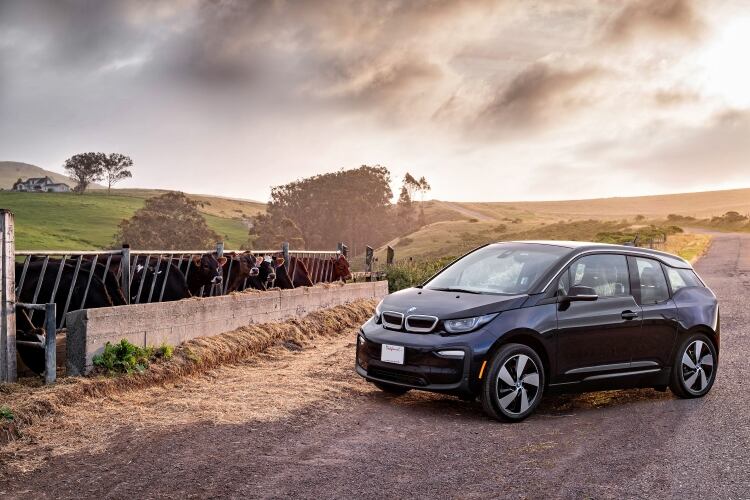Through California Air Resources Board’s Low Carbon Fuel Standard (LCFS) Program, BMW can “power” their customers’ electric vehicles with ultra-low carbon intensity electric fuel produced from biodigester technology on the Straus Organic Dairy Farm.
The BMW collaboration helps Straus Family Creamery founder and CEO Albert Straus’ vision of creating a replicable carbon-neutral farming model on his farm, and it provides an opportunity for California dairy farmers to generate new income sources.
The Straus Organic Dairy Farm and BMW Group’s collaboration created a new farm-to-electric pathway in 2019 that ensured the Straus farm could recently invest in and test an advanced biodigester technology. With costs between $1m and $2m, small-scale methane digesters have not been affordable for smaller dairies. This advanced technology is an upgraded version of the methane biodigester that has been operating on the Straus farm since 2004.
“Dairy farms have an essential role in being a solution to climate change. I really appreciate BMW Group’s willingness and collaboration in helping us create a viable farming system,” said Straus.
Straus Organic Dairy Farm’s methane biodigester converts the methane from cows’ manure into electricity and is on track to generate approximately 250 megawatts of renewable electricity in 2021. The newly-designed biodigester technology will help make methane biodigesters more affordable for small-scale organic dairy farms, enabling the reduction of methane (a greenhouse gas 86 times more potent than carbon dioxide) emissions and creating additional revenue sources for farmers through the sale of carbon credits through the LCFS program.
A biogas generator currently powers the Straus Organic Dairy Farm and exports energy to the California power grid. In January 2021, the electricity started being used to “power” BMW electric vehicles. This collaboration creates two to four times more revenue than the standard utility agreement for the Straus farm. The biodigester also helps the Straus farm decrease yearly methane emissions by 720 metric tons as it generates renewable energy.
“The exciting thing about dairy biodigesters is that they create a double-carbon emission reduction. On the one hand, they capture methane emissions from manure on farms that would otherwise be released into the atmosphere. And they also produce electricity which replaces fossil-fuel generation on the grid,” said Adam Langton, energy services manager of connected mobility, BMW of North America.
Farmers are addressing methane emissions under the state’s greenhouse gas reduction laws passed several years ago. These laws mandate a methane emission reduction of 40% below 2013 levels by 2030. The digester trial on the Straus Organic Dairy Farm demonstrates a model for small-scale organic dairy farmers who want to adopt methane biodigester technology.
“Achieving a dramatic reduction in climate emissions from dairy farms requires multiple solutions, but the central piece of the dairy farm carbon-neutral equation is methane biodigester technology,” said Joseph Button, sustainability director, Straus Family Creamery.
BMW Group’s new ChargeForward is the first smart charging program to offer customer incentives for maximizing the integration of renewable energy with EV charging.
“Renewable energy is a key component of BMW Group’s sustainability strategy. We are aiming to power all of our electric vehicles here in California with 100 percent clean energy, and the partnership with Straus Organic Dairy Farm is helping us make this a reality in California,” said Langton.
Launching this week, this advanced smart charging initiative is available to all BMW battery electric (BEV) and plug-in hybrid (PHEV) vehicle drivers in Northern and Central California who are also PG&E residential, electric customers.

